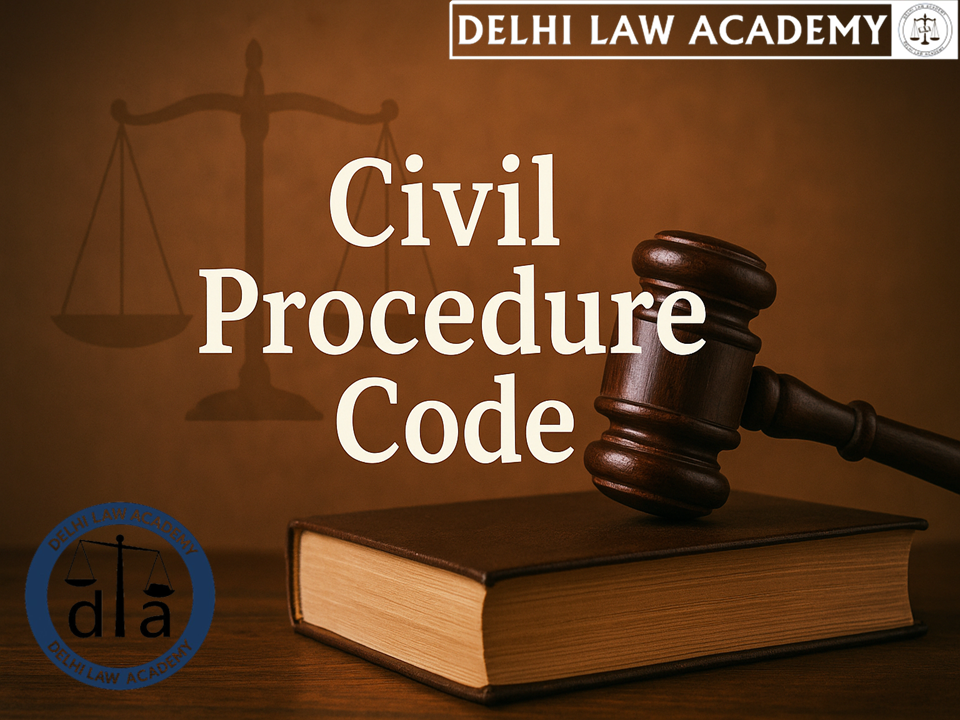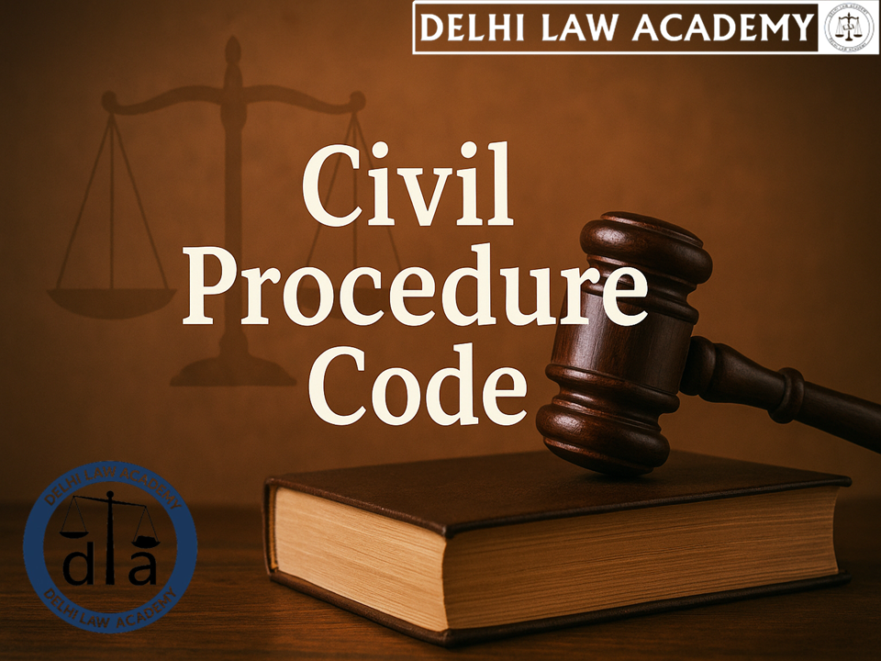
⚖️ CIVIL PROCEDURE CODE : SECTION 11 CPC – RES JUDICATA JUDGMENTS ⚖️
📜 SUPREME COURT JUDGMENTS ON SECTION 11 CPC
- Gulabchand Chhotalal Parikh v. State of Bombay [1964 SC]
- State of UP v. Nawab Hussain [1977 SC]
- Devilal Modi v. Sales Tax Officer Ratlam [1964 SC]
- G.N. Nayak v. Goa University [2002 SC]
🏛️ P & H HIGH COURT JUDGMENT ON SECTION 11 CPC
- Harbhagwan v. Smt. Punni Devi [1999 P&H]
🎯 Preparation for RJS, DJS, PCS (J) and other Judicial Service exams
CIVIL PROCEDURE CODE EXPLAINED
The Civil Procedure Code forms the bedrock of any and every Judicial Service exam in the country. Its thorough knowledge is a must for all aspirants of RJS, DJS, PCS (J) and every other Judicial Service exam. To help such aspirants, DELHI LAW ACADEMY JAIPUR has launched a series of study material modules on all important aspects of this vital part of their syllabus:
⚖️ RES JUDICATA (Section 11 CPC)
- No Court shall try any suit
- in which the matter directly and substantially in issue
- has been directly and substantially in issue in a former suit between same parties
- in a Court competent to try such subsequent suit and has been heard and finally decided by such Court
📘 Explanatory Notes from DLA on Section 11
- Limitations of Section 11: Provisions are not exhaustive. Any prior decision after full contest or fair opportunity, by a competent court, will operate as res judicata in a subsequent regular suit.
- It is not necessary that the Court deciding formerly be competent to decide the subsequent suit or that the subject-matter be identical. Nature of former proceeding is immaterial.
- Authority: Gulabchand Chhotalal Parikh v. State of Bombay [1964 SC]
📚 Case Study 1: State of UP v. Nawab Hussain [1977 SC]
- Facts:
- Sub-Inspector Nawab Hussain dismissed in 1954; appeal dismissed in 1956.
- Filed writ petition in 1959; dismissed.
- Filed suit in 1960 challenging dismissal; trial court dismissed, High Court decreed in 1968.
- Judgment:
- Not permissible to challenge dismissal on grounds not raised in earlier writ petition – principle of constructive res judicata applied.
📚 Case Study 2: Devilal Modi v. Sales Tax Officer Ratlam [1964 SC]
- Petitioner challenged sales tax assessment; writ petition dismissed; appeal to SC; attempted additional contentions rejected.
- Filed another writ petition in High Court for same year; dismissed.
- Principle: Without constructive res judicata, a party could file multiple proceedings on same cause – contrary to public policy.
📚 Case Study 3: Gulabchand Chhotalal Parikh v. State of Bombay [1964 SC]
- Question: Whether High Court decision on merits in writ petition operates as res judicata in a regular suit for same matter?
- Answer: Yes.
⚖️ Illustrations
- G.N. Nayak v. Goa University [2002 SC]: Subsequent writ petition on different grounds (actual bias) is not barred by res judicata.
- Harbhagwan v. Smt. Punni Devi [1999 P&H]: Third suit not barred where earlier suits dismissed as withdrawn with permission to file fresh on same cause of action.
📚 Continue Your CPC Preparation
Don’t stop here! Strengthen your knowledge of the Civil Procedure Code with our other fully solved tests:
📘 Free Study Material for Judiciary Aspirants!
Download our FREE study material prepared by Delhi Law Academy’s expert faculty.
❓ FAQs on Section 11 CPC – Res Judicata Case Studies
Contact us
📍 Delhi Law Academy – Jaipur Branch
6C, Tower 2, Coaching Hub, Pratap Nagar, Jaipur – 302033
📞 Phone:
+91 9911916552
+91 8447285606
✉️ Email:
contactus@delhilawacademy.com

